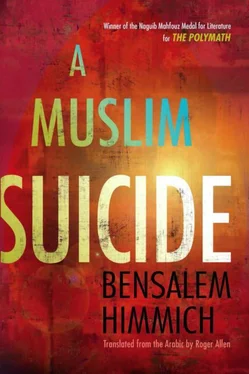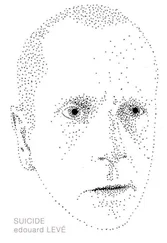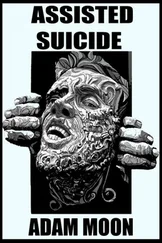"Take as your example the inventive researcher who wishes to create something-in other words, a process of arousing his quest for learning, of honing his talents and his own confidence in them. In the course of carrying out this obligation with all due enthusiasm and seriousness, he enables you to embark upon a path that equips you to perform at your optimum level, all the while existing in a state of somnolence.
"I want you to act just like this inventive investigator. Train your memory and encourage it to memorize passages of prose and poetry, all of them chosen for their inimitable style and rhetorical and intellectual acumen. That way you will acquire the gift of language that serves as the very air of your ever-developing identity and its dynamic base.
"But language with no ideas behind it is an empty vessel, a skeleton with no flesh and bones. It is only through the power of ideas that language enables you to understand the All-knowing and His words.
"The intellect is a creative force through which truths are sought. It may manifest itself in a form that is either logically organized or else scattered and fragmentary. The process involves particular methods that my assistant, `Abd al'Ali, will now explain to you."
With that Abd al-Ali stood up. "The first of those methods," he told his audience, "involves ways of framing and posing questions. The gateway to probing and lively thought and the primary mode of its instigation lies in the question itself. Among its worthy attributes are authenticity, creativity, and profundity. In that way the question itself raises issues and topics that require the activation of the mind, since it is able to distinguish between what is essential and what is coincidental, the mind that is in quest of the source, the totality, and the comprehensible.
"Second, the construction of hypotheses, a mental activity that focuses on knowledge and a reasonable inclination to invigorate what is static and keep the imagination at work.
"Third, an intellectual approach that makes use of logical, recognized methods: careful examination and inference, juxtaposing one problem with another once you have analyzed both, followed by a process whereby the two are combined into a single issue that manages to surmount the difficulties they present by preserving the essential qualities of each one of them. While still at the learning and experimental phase such practices are unavoidable, but, once a certain stage of achievement and maturity has been reached, then the `escape of the gnostic' can be realized through impulse, discovery, and invention in a realm beyond the logic of opposites and the various rationales of adaptation, invention, and rotation..'
All of a sudden he fell silent. I was in the process of trying to come up with some vivid, tangible examples that I could use with the students to explain certain obscurities in my statements. But once I became aware of what was going on around me, I noticed that a stern old man was heading in my direction, accompanied by two other people like him. He leaned over and addressed me in a chiding tone.
"I am the supervisor of this mosque," he said, "and I'm responsible for what goes on here. Esteemed shaykh, teaching in this spot without a proper license is not permitted."
"But the mosque is God's own house," I replied. "Teaching the next generation is a solemn obligation enjoined upon those with knowledge."
"True enough, shaykh, but not without due permission from the local authorities. His Excellency the Governor commands that order be kept and forbids all kinds of sedition and dissent."
When my quartet of students heard what he was saying, they rose to their feet in disgust.
"My good man," said Al-Sadiq in a harsh tone that was clearly audible, "haven't you read in the text of the Qur'an those verses that encourage people to study and learn? Can it be that the words of the Lord of all messengers have not reached you, where he says, `Knowledge is a cache of treasure whose key is questioning? So ask questions, may God have mercy on you all! There are four people whom He will esteem: the questioner, the teacher, the listener, and the one who loves them all."'
"Yes, and that's a report recorded by Abu Nu'aym al-Isfahani* from 'Ali* himself," Adnan continued in support of his colleague. "We are gathered here to acquire knowledge in accordance with the ordinance of God and His apostle. We have no need of a license from any governor or sultan."
The entire assembly now stood up and chanted the words that Adnan had uttered. The entire situation was in danger of getting out of hand and moving to other quarters as well. Through the hubbub I heard the supervisor issuing threats.
"You're inciting young people to commit rebellion, shaykh," he said. "Either you break it up, or else I'm going to call the police and guards."
With that I too stood up and indicated to the group that they should calm down and make their way to the ablutions section. That is precisely what they did.
I sat down on the mat with my quartet of students around me, all of us coming to terms with what had just happened.
"It won't be difficult for me to obtain a license to teach," I told them. "If I make the request, Ibn Khalas the governor will be only too glad to give me one. But I'm afraid that such a move is bound to involve some kind of trap."
Khalid's eyes were gleaming. "The request to Ibn Khalas for a license won't be coming from you," he said in the tone of someone who has just made a discovery. "It'll come from us, in the form of a petition signed only by the students from Sabta, not others. They'll take it to the governor. That at least is my suggestion, although I'm not sure what the outcome will be."
"It would be better for the three of us not to be involved in the application," said Al-Sadiq to underline what Khalid had just said. "Then we can't be accused of sedition and incitement, something that would get us expelled. That's something we couldn't tolerate."
We all agreed to Khalid's plan and his generous offer to implement it. That settled, we all made ready to perform our ablutions before praying the sunset prayer. That completed, my companions all suggested that my best plan was to return home. They escorted me as far as the door. I offered them some dinner, but they declined, said farewell, and went their own way.
When I went inside, I had fully intended to keep what had transpired in the mosque a secret from my wife, but Hafsa informed me with a habitual frown that her mistress was going to spend the night with her aunt, who had suddenly been taken ill. I asked her about `Abla, and it was obvious that my question surprised and offended her.
"Did she go with your mistress?" I asked in order to clarify my intentions.
"Oh, `Abla's sound asleep!" she replied mockingly. "Shall I wake her up and have her bring you your meal?"
I shook my head and hurried away to my prayer-room.
MY SLEEP PATTERNS that night were much disturbed, and I spent several hours wide awake or else dozing off for a while. Whichever of the two states I was in, I kept on dreaming of spoken confrontations with different faces: Khalid and 'Abla, King Frederic, Ibn Khalas the governor, 'Abd al-Barr al-Baradi`i, `Ukasha al-Khalti, the warden of the insane, Fayha' and her aunt and uncle. While I could remember snippets of the conversations I had with them, they dissipated as soon as I woke up or became aware of my surroundings.
Very early in the morning I decided to put a definitive end to my tossings and turnings. I got out of bed and proceeded to perform my ablutions and prayers before reading some texts of the ancients. I decided to resort to a walk around the house garden, in the hope that the earliness of the hour might refresh my senses and whet my distracted mind. Then I might feel more relaxed and be able to go back to the process of writing and revising my book, Escape of the Gnostic. As I was walking along a hallway leading to my destination, I happened to hear some groans coming from the room of Hafsa, the maid. If it were not for the sighs of pleasure and delight I would have assumed that someone had been wounded. For a while I stayed rooted to the spot, but, when it was a little lighter, I took a peep through the aperture. What a horrendous sight did I behold!! There was Hafsa, stark naked and behaving like some wild animal; beneath her lay `Abla, spreadeagled like some piece of prey. Without the slightest doubt, they were engaging in lesbian sex, thrashing around and grabbing each other for all they were worth, not to mention the snorts, grunts, and gasps they kept making. The whole thing appalled me, but I decided not to stop them and reprimand them both severely for fear of consequences that I could not even envisage. No, I told myself, better to wait; definitely better to wait. With that I hurried back to my closet in order to think things over. I had heard before about lesbianism, but had never actually witnessed the kind of thing I had just seen. I now recalled that 'Abla had alluded to the fact that someone else was keeping her constrained, but she had kept it a secret. Now this very morning I had discovered it for myself. Obviously Hafsa hated men, but `Abla was clearly being forced to do something she did not like. If not, then why had she asked me on several occasions to get her married? So now things were a lot clearer, and my earlier intuitions had proved to be correct. From now on I would have to sever this bond between the wild female beast and the young gazelle, indeed to save the gazelle from the wild beast's clutches. The entire operation would require a good deal of secrecy, skill, and careful management. As the saying has it, success comes only from God!
Читать дальше












